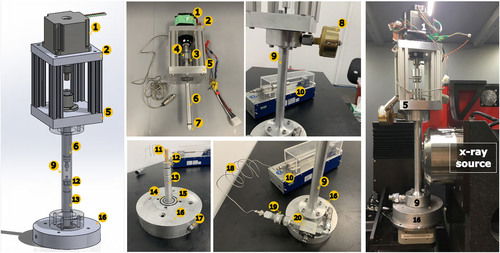HP-TACO: A high-pressure triaxial compression apparatus for in situ x-ray measurements in geomaterials

Triaxial compression experiments are commonly used to characterize the elastic and inelastic behavior of geomaterials. In situ measurements of grain kinematics, particle breakage, stresses, and other microscopic phenomena have seldom been made during such experiments, particularly at high pressures relevant to many geologic and man-made processes, limiting our fundamental understanding. To address this issue, we developed a new triaxial compression device called HP-TACO (High-Pressure TriAxial COmpression Apparatus). HP-TACO is a miniaturized, conventional triaxial compression apparatus permitting confining pressures up to 50 MPa and deviatoric straining of materials, while also allowing in situ x-ray measurements of grain-scale kinematics and stresses. Here, we present the design of and first results from HP-TACO during its use in laboratory and synchrotron settings to study grain-scale kinematics and stresses in triaxially compressed sands subjected to 15 and 30 MPa confining pressures. The data highlight the unique capabilities of HP-TACO for studying the high-pressure mechanics of sands, providing new insight into micromechanical processes occurring during geologic and man-made processes.
Download from Researchgate.com